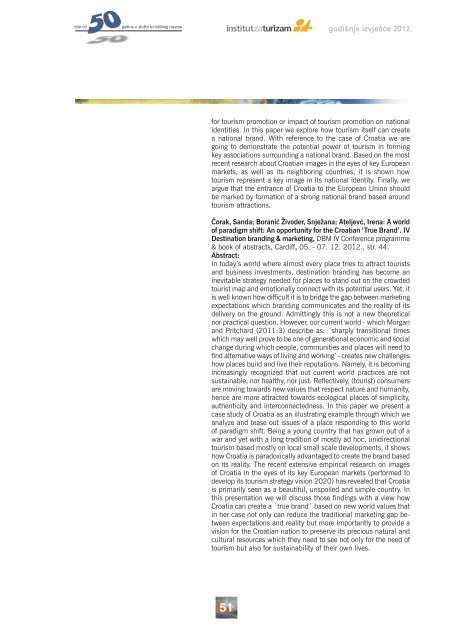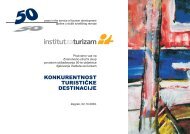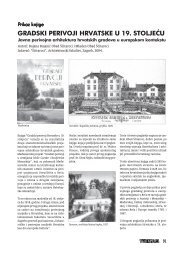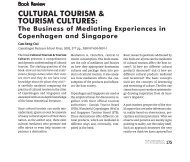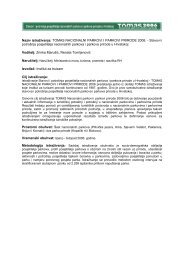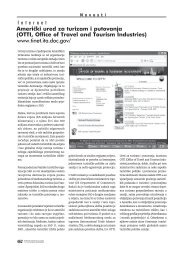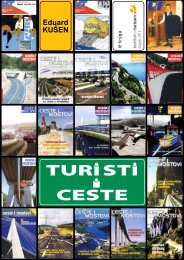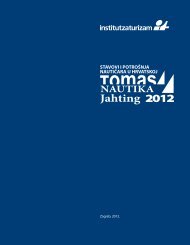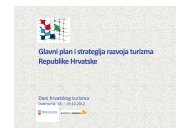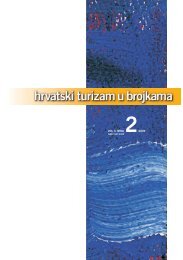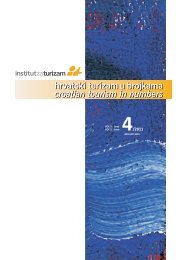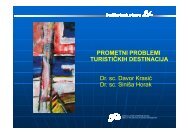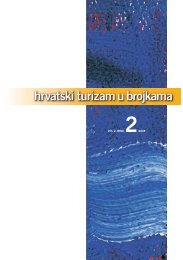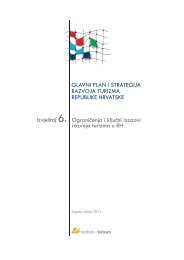više od godina u službi turističkog razvoja
IT godiÅ¡nje izvjeÅ¡Äe 2012 - Institut za turizam
IT godiÅ¡nje izvjeÅ¡Äe 2012 - Institut za turizam
You also want an ePaper? Increase the reach of your titles
YUMPU automatically turns print PDFs into web optimized ePapers that Google loves.
<strong>više</strong> <strong>od</strong>g<strong>od</strong>ina u <strong>službi</strong> <strong>turističkog</strong> <strong>razvoja</strong>g<strong>od</strong>išnje izvješće 2012.for tourism promotion or impact of tourism promotion on nationalidentities. In this paper we explore how tourism itself can createa national brand. With reference to the case of Croatia we aregoing to demonstrate the potential power of tourism in formingkey associations surrounding a national brand. Based on the mostrecent research about Croatian images in the eyes of key Europeanmarkets, as well as its neighboring countries, it is shown howtourism represent a key image in its national identity. Finally, weargue that the entrance of Croatia to the European Union shouldbe marked by formation of a strong national brand based aroundtourism attractions.Čorak, Sanda; Boranić Živ<strong>od</strong>er, Snježana; Ateljevć, Irena: A worldof paradigm shift: An opportunity for the Croatian ‘True Brand’. IVDestination branding & marketing, DBM IV Conference programme& book of abstracts, Cardiff, 05. - 07. 12. 2012., str. 44.Abstract:In t<strong>od</strong>ay’s world where almost every place tries to attract touristsand business investments, destination branding has become aninevitable strategy needed for places to stand out on the crowdedtourist map and emotionally connect with its potential users. Yet, itis well known how difficult it is to bridge the gap between marketingexpectations which branding communicates and the reality of itsdelivery on the ground. Admittingly this is not a new theoreticalnor practical question. However, our current world - which Morganand Pritchard (2011:3) describe as: ´sharply transitional timeswhich may well prove to be one of generational economic and socialchange during which people, communities and places will need tofind alternative ways of living and working’ - creates new challengeshow places build and live their reputations. Namely, it is becomingincreasingly recognized that out current world practices are notsustainable, nor healthy, nor just. Reflectively, (tourist) consumersare moving towards new values that respect nature and humanity,hence are more attracted towards ecological places of simplicity,authenticity and interconnectedness. In this paper we present acase study of Croatia as an illustrating example through which weanalyze and tease out issues of a place responding to this worldof paradigm shift. Being a young country that has grown out of awar and yet with a long tradition of mostly ad hoc, unidirectionaltourism based mostly on local small scale developments, it showshow Croatia is paradoxically advantaged to create the brand basedon its reality. The recent extensive empirical research on imagesof Croatia in the eyes of its key European markets (performed t<strong>od</strong>evelop its tourism strategy vision 2020) has revealed that Croatiais primarily seen as a beautiful, unspoiled and simple country. Inthis presentation we will discuss those findings with a view howCroatia can create a ´true brand´ based on new world values thatin her case not only can reduce the traditional marketing gap betweenexpectations and reality but more importantly to provide avision for the Croatian nation to preserve its precious natural andcultural resources which they need to see not only for the need oftourism but also for sustainability of their own lives.51


